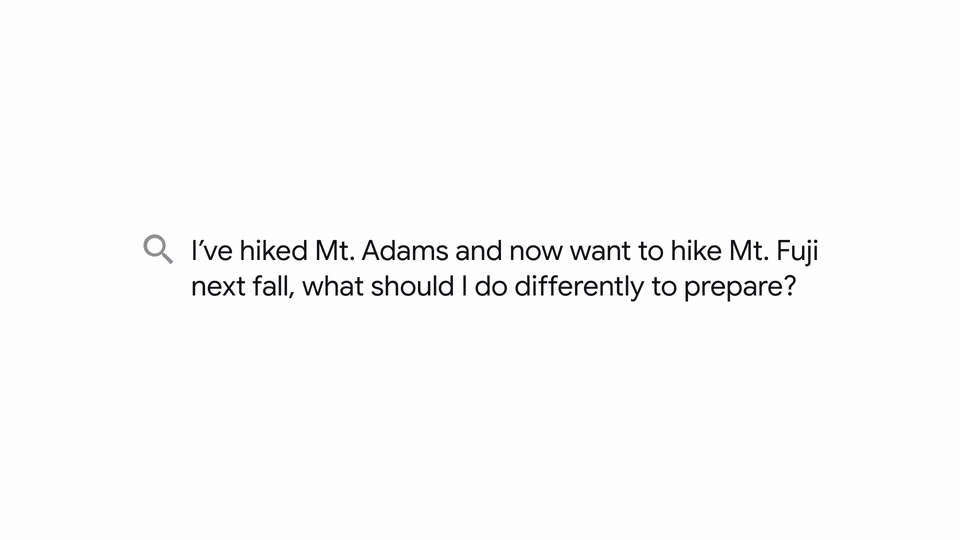Google MUM: New Search Technology
Google is releasing new tech that aims to improve their understanding of more complex queries that will enable them to provide more accurate and relevant results for these types of queries. MUM stands for Multitask Unified Model which is similar to the BERT model wherein they are built on the same Transformer architecture, but MUM is 1000x more powerful than its predecessor. So, what does this new tech bring to the search landscape and how will it affect SEO?
Google MUM
Another difference between MUM and BERT is that MUM is trained across 75 languages – not just one language (usually English). This enables the search engine, through the use of MUM, to connect information from all around the world without going through language barriers. Additionally, Google mentioned that MUM is multimodal, so it understands and processes information from modalities such as text and images. They also brought up the possibility for MUM to expand to other modalities such as videos and audio files.
Effects of MUM on Search
The example shown by Google where MUM took effect on search is when a user searched for “hiking on Mt. Fuji”. Since MUM is capable of multitasking, accessing and understanding deeper knowledge, and reading/understanding information across 75 languages, the search results for “hiking on Mt. Fuji” will be hyper-comprehensive that might include:
- Mountain Elevation
- Trail Information
- Best season to hike
- Hiking and fitness gear (based on the current weather/season)
- Subtopics (training and workout regimen for hikers, useful articles/videos/images across the web)
- Information from different languages (like Japanese since Mt. Fuji is in Japan)

GIF From Google Blog Post
Additionally, since MUM is multimodal, you can also use images to provide more context to your questions. The example used by Google is providing a photo of your hiking boots and searching “can I use these to hike Mt. Fuji?”. Through MUM, it can determine if your hiking boots are okay to be used and Google search results will also provide different articles and posts that can help further refine your desired answer such as top-rated hiking gears/boots, hiking boot reviews, etc.

GIF From Google Blog Post
How Google MUM Can Affect SEO
Google’s introduction of the MUM technology is by no means a small announcement. It’s an innovative and game-changing tech that would immensely affect the SEO Industry, especially its effects on Semantic Search.
The first reason would be because Google, using MUM, would be able to access, retrieve, compile/save, understand and interpret information from a variety of languages. This means that websites and their corresponding posts that are written in a country’s native language will have a massive opportunity in gaining a worldwide audience base.
So, for example, I’m writing about my experiences as a motivational speaker, but I wrote in my native language of Filipino – my article or post would possibly be able to reach someone that’s searching for information on motivational speaking from the other side of the world through the help of MUM. Of course, this necessitates that the information I wrote is beneficial and relevant to the searcher. But if it is, then my post or article that was initially intended for Filipino readers/speakers just reached someone from a thousand miles away – allowing me to tap into a wider audience.
The second reason would be Google MUM removing limitations set by different platforms/modalities of content. If MUM can retrieve and understand information from different modalities, then this could mean the search results would contain podcasts, youtube videos, etc. Since information retrieval and display aren’t limited to just one content type (text).
Key Takeaway
The reasons mentioned above are just mere assumptions. Although it would be a bigger and better search landscape, it would also lead to a completely new and different set of SEO strategies, tactics, and techniques.
Will this create a better search experience for users? Absolutely. Providing more sources of information and being able to understand more complex queries that were otherwise accepted as impossible for machines, MUM will be changing how users search.
Will this be a good thing for SEOs and webmasters? Let’s wait and find out once MUM is rolled out. What do you think of Google MUM? Let me know your opinions in the comments below!
